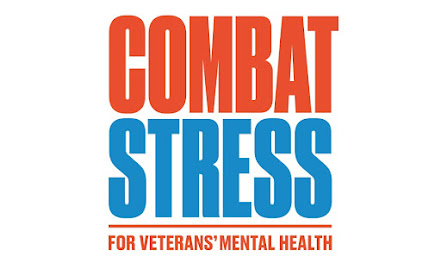In spite of my most diligent efforts, there would unquestionably be some raping.” -Gen George S Patton
As a result of combat stress, there can be marked personality changes in a combatant. Sometimes these changes can affect his libido, sexual orientation, and sexual behavior. After facing stressful combat situations, soldiers can experience loss of libido and erectile dysfunction without any organic causes. Depression and anxiety may be the reasons for the above-mentioned condition. Paradoxically, in some combatants, the libido increases as a consequence of combat stress. The exact mechanism is not known. Some experts think that hyper-libido, or sex addiction, is a form of stress outlet—a compensatory mechanism to evade stress factors that are experienced by the combatant. Some argue it is following the experiences that were encountered by the combatant in war situations and is later strengthened through classical conditioning.
We still do not know whether sexual deviant behaviors appear as one of the complications of battle stress. How does a disciplined soldier turn into a rapist or a sexual molester after experiencing combat trauma? Numerous case studies show that traumatic experiences affect libido, sexual orientation, and sexual preferences. Therefore, further research would be needed to establish whether there is a correlation between combat trauma and sexually deviant behavior.
Sexually deviant behavior during war situations varies in extent and takes distinct forms. Rape, sexual mutilation, bestiality, etc. have been recorded from the war zones since ancient days. In ancient times, victorious soldiers raped and enslaved women after they had conquered a city or a tribe. Sexual torture was a part of the post-war act. Sexual violence was used to humiliate and frighten the enemy.
Rape is an extreme form of sexual sadism. Soldiers with sexual sadistic impulses derive pleasure from harassing, humiliating, physically beating, mutilating, and raping women. They often justify these acts as measures to win the war. In modern times rape has been documented in many armed conflicts, including WW1, WW2, the Vietnam War, etc.
Author Maria B. Olujic explains sexual violence on the battlefield thus.
"Rape was a weapon of terror as the German Hun marched through Belgium in World War I; gang rape was part of the orchestrated riots of Kristallnacht, which marked the beginning of Nazi campaigns against the Jews. It was a weapon of revenge as the Russian Army marched to Berlin in World War II; it was used when the Japanese raped Chinese women in the city of Nanking, when the Pakistani Army battled Bangladesh, and when the American G.I.s made rape in Vietnam a "standard operating procedure aimed at terrorizing the population into submission."
Susan Brownmiller, an investigator who gathered data on sexual crimes committed by the American GIs in Vietnam, points out that a few perpetrators were brought to justice. Susan Brownmiller highlights that based on the US Army court-martial statistics for rape and related charges, only 58% of those tried between 1965 and 1973 were convicted. She further says,
"A sentence of two to eight years at hard labor might be typical for rape, even in cases in which the victim had been murdered; sodomy, attempted rape, and attempted sodomy were preferred as charges because they carried lesser penalties; and sentences were routinely cut in half by a board of review."
Rape in a war zone is often motivated by violent and vengeful anger toward the enemy. It has been used to demoralize and terrorize the enemy and their supporters. Sometimes it is an expression of brutal power and domination.
During the 1971 JVP insurrection in Sri Lanka, Lieutenant Alfred Wijesuriya, of the 3rd Gemunu (Volunteer) Watch of the Sri Lanka Army, and Corporal Amaradasa Ratnayake were charged with torture, rape, and murder of the 18-year-old girl Premawathi Manamperi of Kataragama in Southern Sri Lanka. Later the two accused were sentenced to 16 years of rigorous imprisonment.
When the Indian Peace Keeping Force (IPKF) was deployed in Sri Lanka, it was increasingly accused of raping Tamil women. According to the Amnesty International Annual Report, 1988, for the period January to December 1987, the IPKF had been responsible for seven cases of rape in December. In 1988, two Indian soldiers were court-martialed for raping two girls during a cordon and search operation at Ariyampathi in the East of Sri Lanka. When the Indian Peace Keeping Force was charged with rape in the Northern Peninsula. Brigadier Kahlon of the Indian Army replied, “The Indian Army are not angels. We are not devils either. We are just humans.' Rape happens even in the West.”
Rapes had been reported on the Northern War Front. On the 7th of August 1996, Krishanthi Kumaraswamy—a 19-year-old schoolgirl—was raped and murdered by Lance Corporal Somaratne Rajapakse of the Sri Lanka Army. Lance Corporal Somaratne Rajapakse and five other soldiers who were directly involved in the rape were sentenced to death by the court.
Considering all these facts, we have to think seriously about whether combat stress has any effect on a soldier’s moral code. How does a good family man turn into a sexual predator or a monster? Does the battle stress trigger paraphilias, which are sometimes referred to as sexual deviations or perversions?
From 2002 to 2006, we clinically interviewed 824 soldiers who were referred to the psychiatric ward of Military Hospital Colombo and found a small number of combatants suffering from sexually deviant behaviors. They were treated with medication and CBT with the help of the consultant psychiatrist of the SLA, Dr. Neil J. Fernando. Among the deviations, we found voyeurism was the most common deviation.
Dr. Ruwan M Jayatunge


No comments:
Post a Comment
Appreciate your constructive and meaningful comments